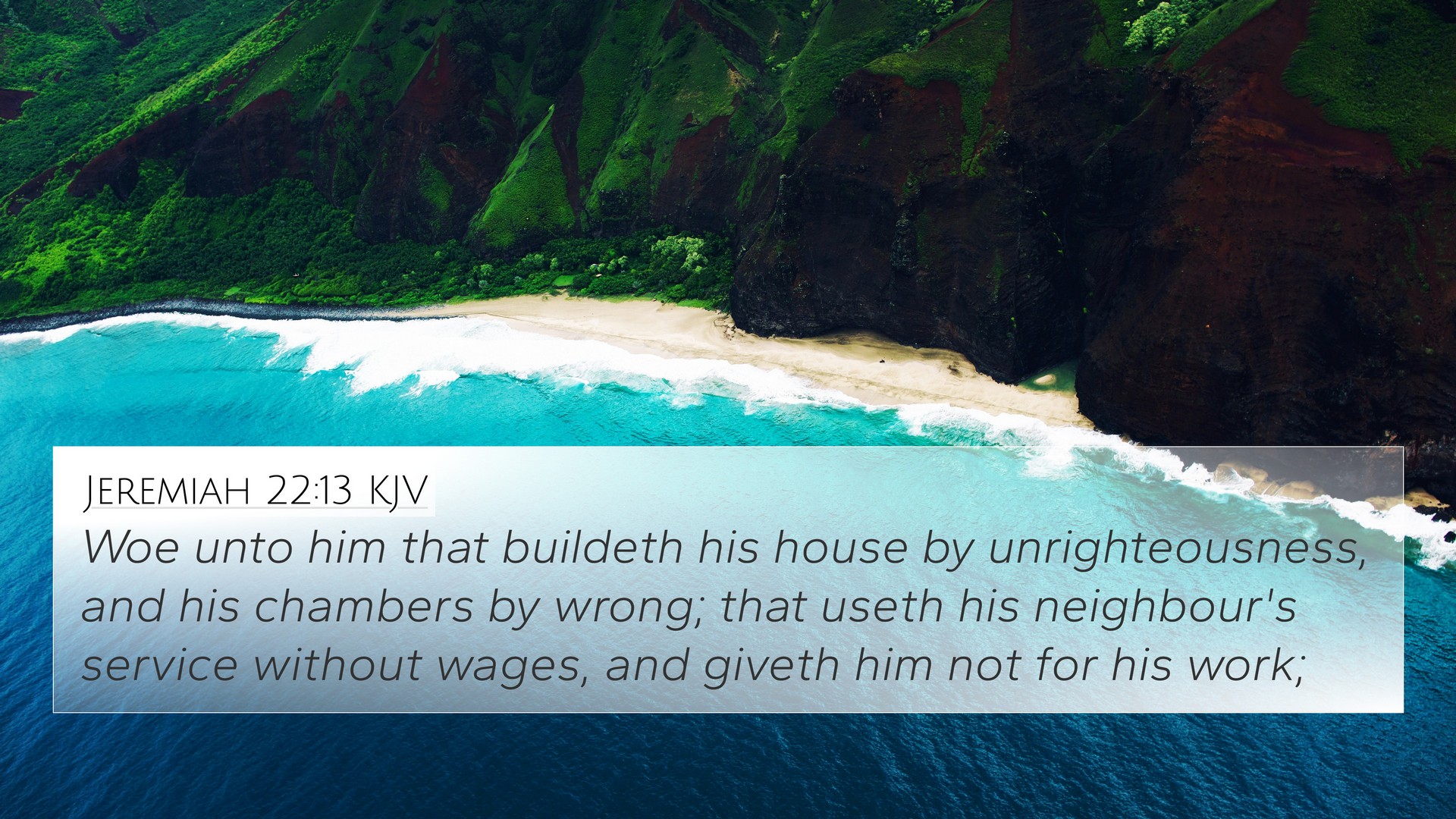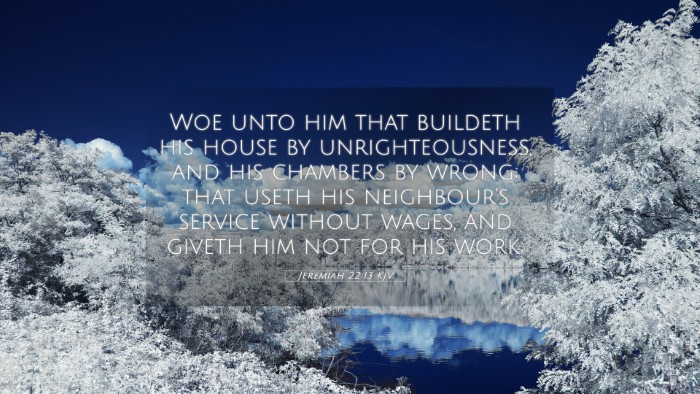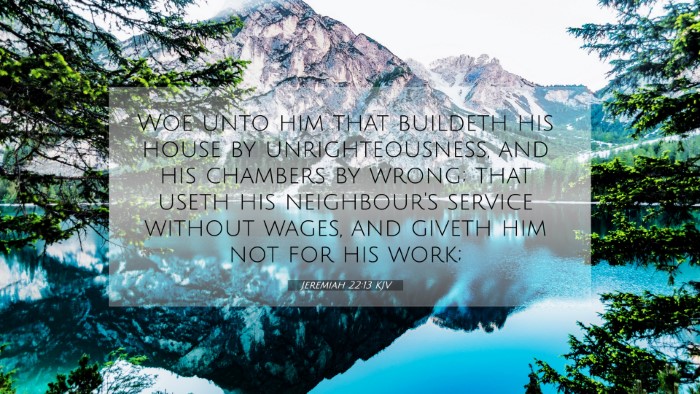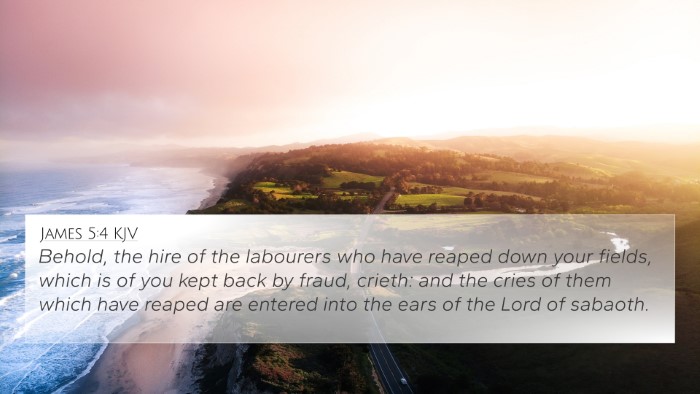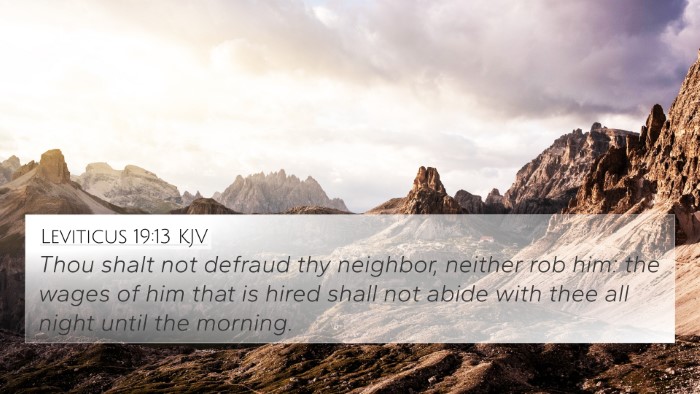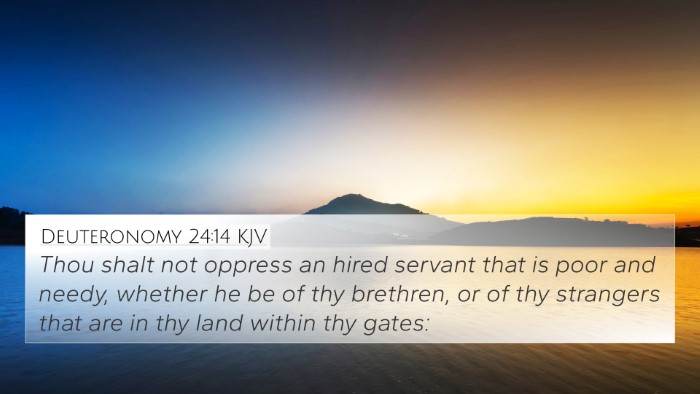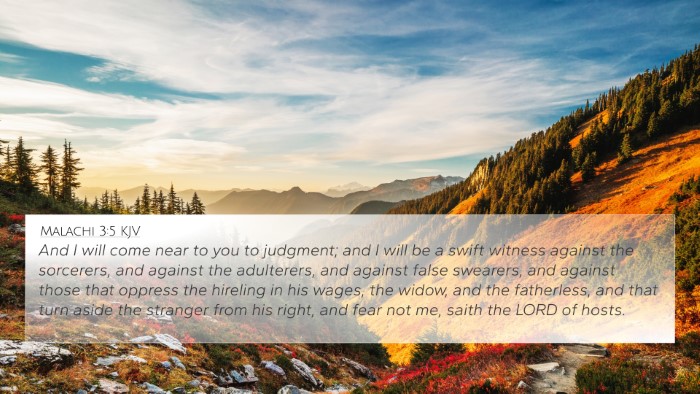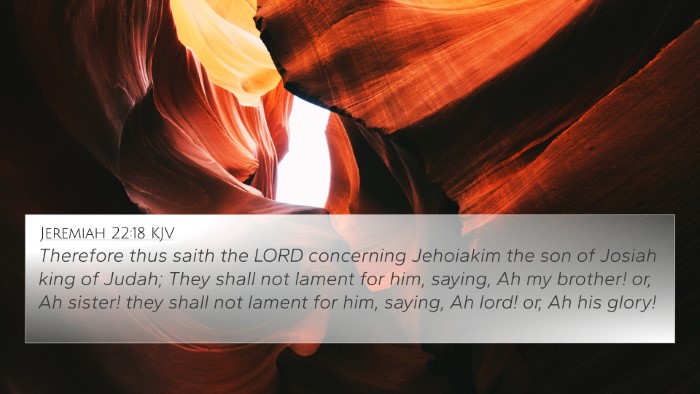Understanding Jeremiah 22:13
Verse: "Woe to him that buildeth his house by unrighteousness, and his chambers by wrong; that useth his neighbour's service without wages, and giveth him not for his work;" (Jeremiah 22:13)
Summary of the Verse
This verse from Jeremiah serves as a dire warning against injustices in the pursuit of wealth and prosperity. It speaks of a ruler or a builder who gains his success through deceit and oppression. Such actions are condemned as they lead to a cycle of corruption and moral decay.
Interpretations from Commentaries
The insights from notable public domain commentaries provide a deeper understanding of this verse:
-
Matthew Henry:
Henry emphasizes the moral responsibility of leaders. Building a house (or a kingdom) unjustly is seen as a metaphor for improper governance. He highlights that a state built on oppression cannot stand, and those who exploit the labor of others without fair compensation are guilty of great sin.
-
Albert Barnes:
Barnes focuses on the socio-economic implications of the verse. He suggests that this doomsday proclamation is rooted in the broader biblical principle that God cares deeply about justice in societal dealings. He connects this to the notion of divine retribution, asserting that the injustices committed against others will ultimately lead to downfall.
-
Adam Clarke:
Clarke connects this admonition with the prophetic tradition, underlying the idea that God’s wrath is invoked by oppression. He remarks on the socio-political context in which this verse was written, linking it to the eventual consequences faced by Israel for their sins.
Thematic Connections
This verse can be cross-referenced with several other passages in both the Old and New Testaments that reinforce its themes of justice and righteousness:
-
Proverbs 21:6: Discusses the fruitless endeavors of those who seek wealth through deceit.
-
Micah 3:10: Condemns those who build Zion with blood and Jerusalem with iniquity, similar to the fraudulent building mentioned in Jeremiah.
-
James 5:4: Speaks against rich oppressors who withhold wages from workers, echoing the sentiments found in Jeremiah 22:13.
-
Isaiah 5:8: Warns about those who add house to house and field to field while neglecting justice.
-
Lamentations 3:34-36: Affirms God's unwillingness to allow injustices to go unnoticed forever.
-
Luke 10:7: Reflects on just compensation for laborers, suggesting fairness and respect as biblical foundations.
-
Matthew 7:24-27: Illustrates the importance of building one's life on a solid, ethical foundation.
Bible Verse Parallels and Interconnections
When studying Jeremiah 22:13, it's valuable to observe the connections between other biblical texts:
-
Thematic Relationship: Many scriptures underline the necessity of justice, such as Isaiah 1:17, which advocates for relief for the oppressed.
-
Exploring Concepts of Justice: Deuteronomy 24:14 similarly emphasizes fair wages and humane treatment of workers.
-
Judgments Against Injustice: Zechariah 7:10 instructs against plotting evil against one another, aligning with themes in Jeremiah's prophecy.
Applications in Bible Study
Understanding the scriptural context and applying cross-referencing can be enriched through specific study methods:
-
Cross-Reference Bible Study: Utilize tools such as a Bible concordance to identify related verses and examine thematic links further.
-
Comparative Bible Verse Analysis: Engage in exploration of how different biblical authors address similar injustices.
-
Identifying Connections: Study how Old Testament themes resonate in New Testament teachings, particularly regarding justice and mercy.
Conclusion
The grave warnings in Jeremiah 22:13 exhort believers to consider the means by which they achieve their goals. God’s justice transcends time, demanding that all actions are fair and righteous. By cross-referencing this verse with others throughout the Bible, one can gain comprehensive insights into God's expectations of justice and proper conduct in society, leading to a more profound understanding of His will and character.
